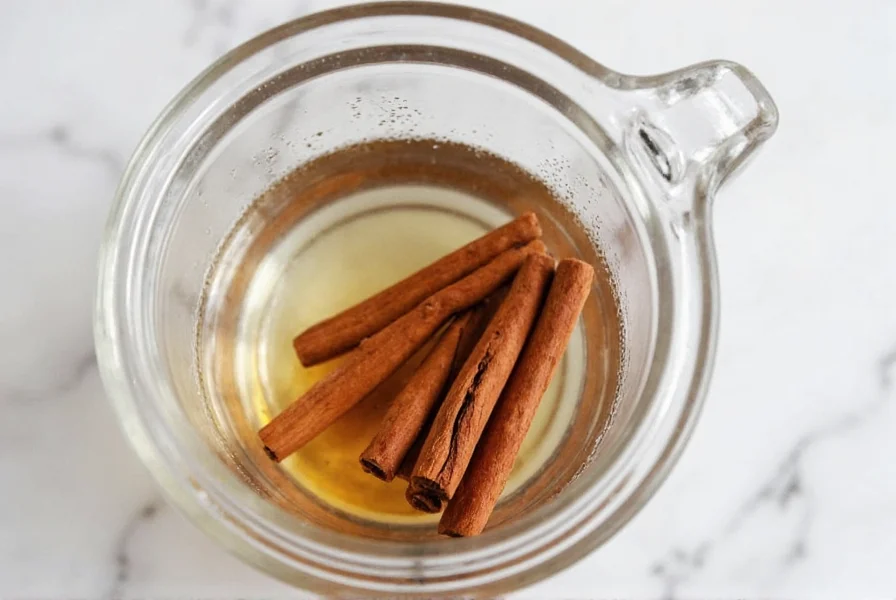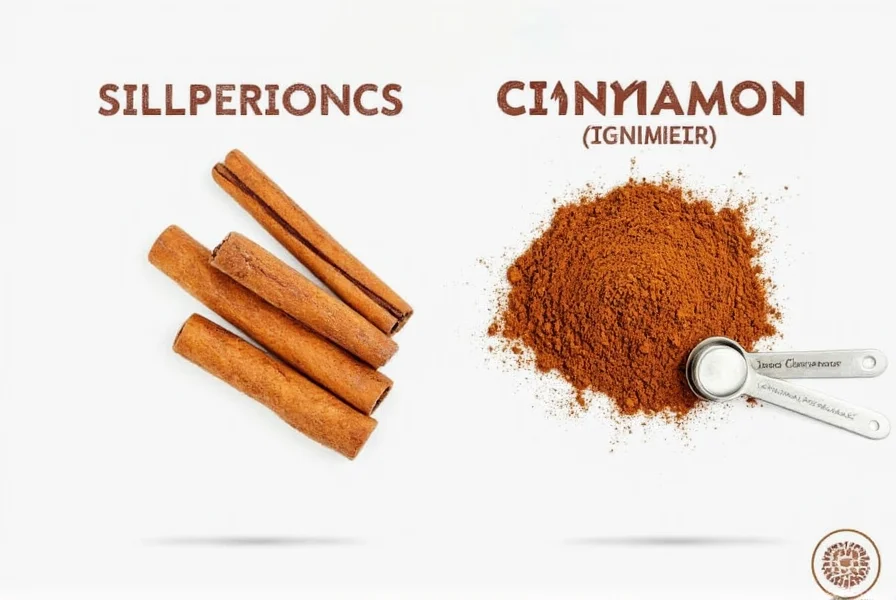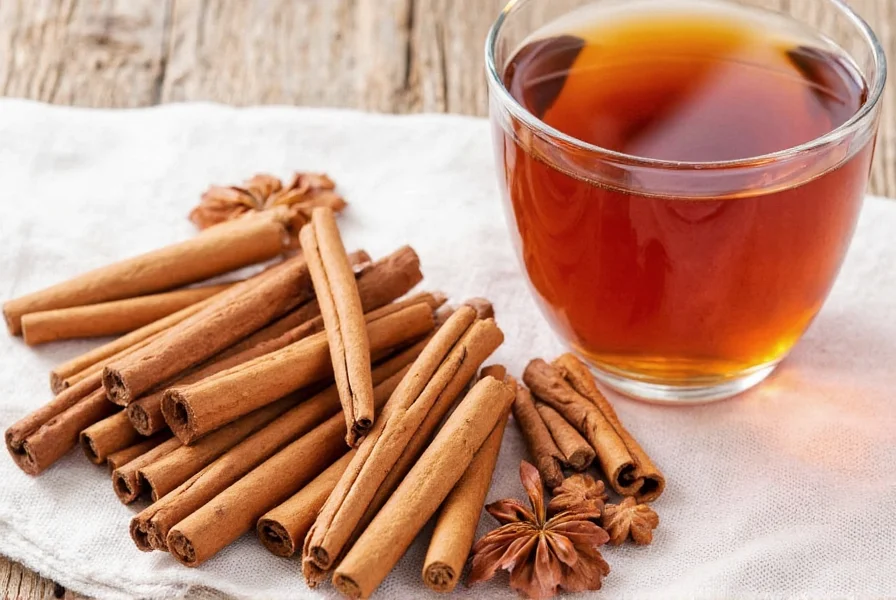Cinnamon tea has gained popularity as a functional beverage with potential health advantages. Unlike many herbal remedies that rely solely on traditional use, cinnamon tea benefits are increasingly supported by scientific research. This article examines the evidence behind cinnamon tea's health effects, preparation methods for maximum benefit, and important safety considerations.
Scientifically Supported Health Benefits of Cinnamon Tea
Multiple studies have investigated cinnamon's bioactive compounds, particularly cinnamaldehyde, which gives cinnamon its distinctive flavor and many of its health properties. When brewed as tea, these compounds become water-soluble and accessible to the body.
Blood Sugar Regulation and Insulin Sensitivity
One of cinnamon tea's most well-documented benefits relates to blood sugar management. A 2017 review published in Nutrition Research Reviews found that cinnamon consumption significantly reduced fasting blood glucose levels in people with type 2 diabetes and prediabetes. The mechanism appears to involve improved insulin sensitivity and slowed gastric emptying.
When preparing natural cinnamon tea for blood sugar control, studies suggest consuming 1-6 grams of cinnamon daily provides benefits without exceeding safe coumarin limits. This typically translates to 1-2 cups of properly brewed cinnamon tea per day.

Antioxidant Properties and Oxidative Stress Reduction
Cinnamon ranks among the most antioxidant-rich spices. Research in Oxidative Medicine and Cellular Longevity shows cinnamon contains polyphenols that combat free radicals. Drinking cinnamon tea for antioxidant benefits delivers these compounds in a readily absorbable form.
A 2020 study measuring antioxidant capacity found that cinnamon tea demonstrated significant free radical scavenging activity, potentially reducing cellular damage associated with chronic diseases and aging. The water-based extraction method used in tea preparation effectively releases these beneficial compounds.
Anti-Inflammatory Effects
Chronic inflammation contributes to numerous health conditions. Cinnamon contains compounds that inhibit inflammatory pathways. A study in Antioxidants demonstrated that cinnamon extract reduced markers of inflammation in human cells.
Regular consumption of cinnamon tea for inflammation reduction may support overall health, particularly for individuals with inflammatory conditions. The tea format allows for consistent, moderate intake without the coumarin concerns associated with larger cinnamon powder servings.
Cinnamon Tea Preparation Methods for Maximum Benefits
How you prepare cinnamon tea significantly affects its health properties. Water extraction methods differ from consuming powdered cinnamon directly.
| Preparation Method | Steeping Time | Benefits Optimized | Coumarin Content |
|---|---|---|---|
| Simmered Ceylon cinnamon sticks | 10-15 minutes | Antioxidants, flavor compounds | Low |
| Simmered Cassia cinnamon sticks | 5-7 minutes | Stronger flavor | Moderate |
| Cold water infusion | 4-8 hours | Gentle extraction | Very low |
For optimal health benefits of homemade cinnamon tea, simmering Ceylon cinnamon sticks (Cinnamomum verum) for 10-15 minutes provides the best balance of beneficial compounds with minimal coumarin extraction. Cassia cinnamon (Cinnamomum cassia), while more common and less expensive, contains higher coumarin levels that may cause liver issues with regular consumption.
Safety Considerations and Recommended Intake
Understanding the safe consumption of cinnamon tea is crucial for maximizing benefits while minimizing risks. The primary concern involves coumarin content, a natural compound found in higher concentrations in Cassia cinnamon.
The European Food Safety Authority recommends a maximum daily coumarin intake of 0.1 mg per kilogram of body weight. For a 70 kg (154 lb) adult, this equals 7 mg of coumarin daily. Cassia cinnamon contains approximately 1,000-6,000 mg of coumarin per kg, while Ceylon cinnamon contains only 40-350 mg per kg.
Based on these figures, consuming 1-2 cups of Ceylon cinnamon tea daily (using one 2-3 inch stick per cup) falls within safe limits for most adults. Those with liver conditions or taking medications should consult healthcare providers before regular consumption.

Evidence vs. Anecdotal Claims
While cinnamon tea shows promise for several health benefits, it's important to distinguish between scientifically supported effects and traditional claims. Research strongly supports cinnamon's effects on blood sugar regulation and antioxidant activity, but evidence for weight loss or cancer prevention remains preliminary.
The proven health effects of cinnamon tea primarily relate to metabolic and inflammatory markers. Claims about dramatic weight loss or curing serious diseases lack sufficient scientific backing. As with any functional beverage, cinnamon tea works best as part of a balanced diet and healthy lifestyle rather than a standalone solution.
Conclusion
Cinnamon tea offers several evidence-based health benefits, particularly for blood sugar regulation, antioxidant protection, and inflammation reduction. Using Ceylon cinnamon and proper preparation methods maximizes benefits while minimizing potential risks associated with coumarin. As research continues, our understanding of cinnamon tea's therapeutic potential will likely expand, but current evidence supports its value as a functional beverage within a healthy lifestyle.
Frequently Asked Questions
How much cinnamon tea should I drink daily for health benefits?
For optimal daily intake of cinnamon tea, research suggests 1-2 cups daily using Ceylon cinnamon sticks. This provides approximately 1-3 grams of cinnamon, delivering health benefits while staying within safe coumarin limits. Consuming more than 4 cups daily may exceed recommended coumarin intake, especially with Cassia cinnamon.
What's the difference between Ceylon and Cassia cinnamon for tea?
Ceylon cinnamon (Cinnamomum verum) has a lighter, sweeter flavor and contains significantly less coumarin (40-350 mg/kg) than Cassia cinnamon (1,000-6,000 mg/kg). For regular cinnamon tea consumption safety, Ceylon is preferred due to lower coumarin content, reducing potential liver concerns with daily use.
Can cinnamon tea help with type 2 diabetes management?
Research indicates cinnamon tea for blood sugar control may improve insulin sensitivity and reduce fasting blood glucose levels. A 2017 review found significant improvements in people with type 2 diabetes, but it should complement—not replace—standard diabetes treatments. Consult your healthcare provider before using cinnamon tea as part of diabetes management.
When is the best time to drink cinnamon tea for maximum benefits?
For optimal timing of cinnamon tea consumption, drinking it before meals may help regulate blood sugar spikes. Many studies on cinnamon's metabolic effects administered it with meals. However, cinnamon tea can be enjoyed at any time, with morning consumption potentially providing antioxidant protection throughout the day.











 浙公网安备
33010002000092号
浙公网安备
33010002000092号 浙B2-20120091-4
浙B2-20120091-4